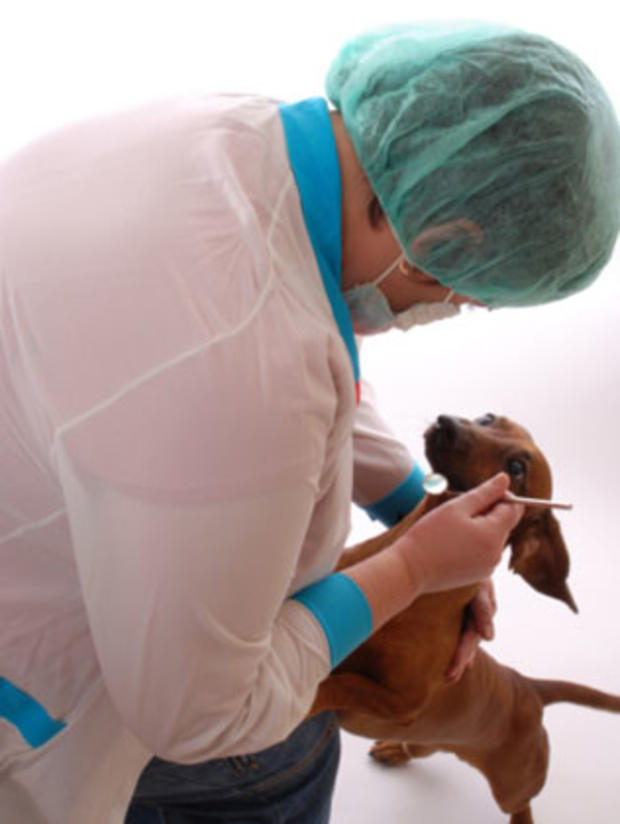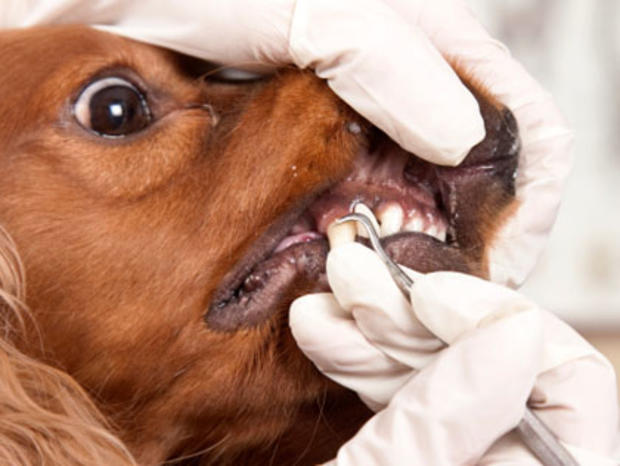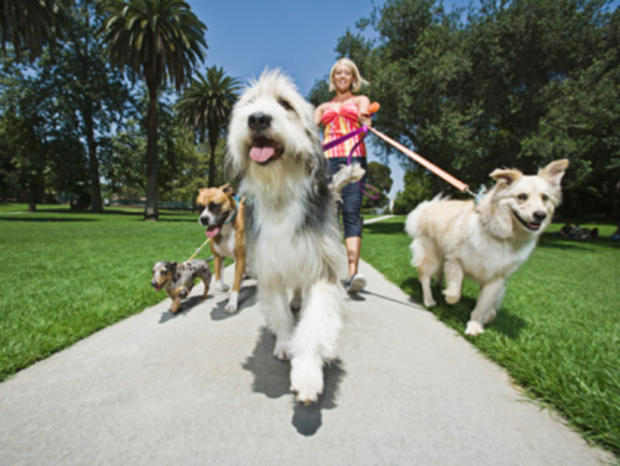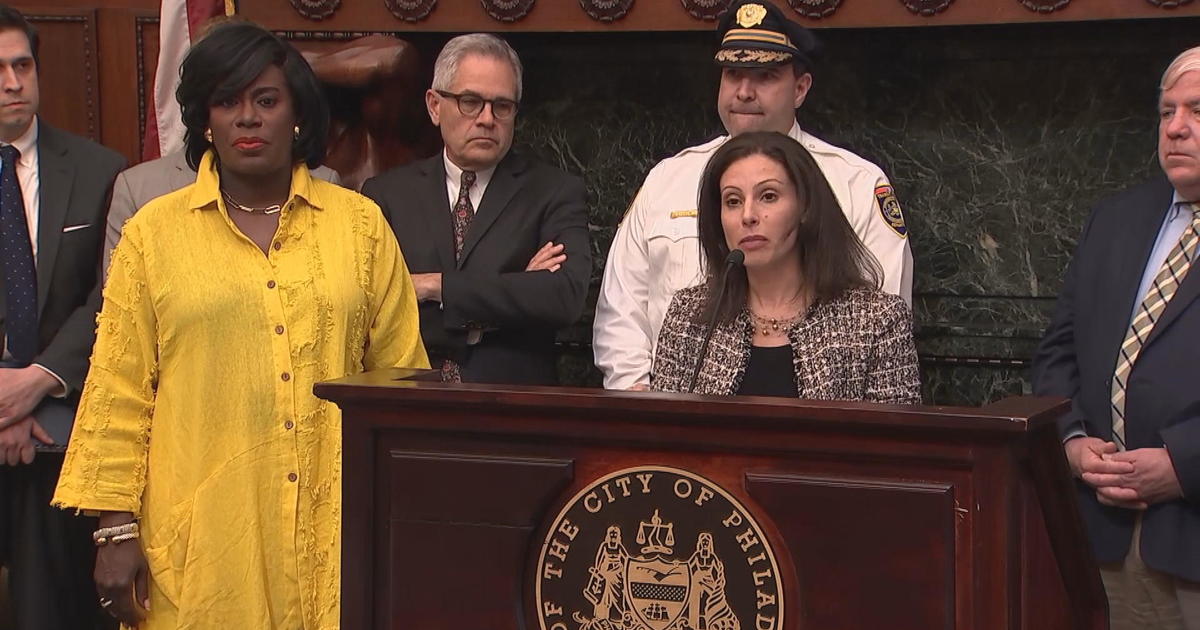Five Vet Tips To Keep Your Dog Healthy In Philadelphia
Philly loves its furry best friends. They just want to be loved and cared for, snuggled, fed and given years of life they wouldn't enjoy without their devoted owners. Work hand-in-hand with your vet to keep your dog happy and in good health.
For dogs younger than eight, annual wellness visits and up-to-date vaccinations are key. Older dogs should be seen at least twice a year, says veterinarian Julia Lane at the Steinbach Veterinary Hospital. Start by neutering to protect against reproductive cancers, improve behavior and protect against unwanted puppies, and go from there.
Dental Care: Dogs can show signs of gum disease by the time they're only 4 years old if owners are not vigilant. That means brushing your dog's teeth frequently — daily if possible — and always using a dog-friendly toothbrush and toothpaste, because the human variety can be irritating or toxic for dogs. Check your dog's mouth on a weekly basis. His teeth should be clean and free of brownish tartar stains, with gums that are pink and neither swollen nor bright red or white. To keep them that way, provide chew toys, dog bones and rawhides. Avoiding canned food helps keep tartar and plaque at bay, as well.
Forbidden Foods: Lots of folks love sharing their meals and snacks with their dogs, but be forewarned: Many human foods are toxic to them and can cause irreversible damage, even death. Top offenders include:
Chocolate: Dark and baking chocolate in particular can raise dogs' heart rates and cause arrhythmia. Withhold all chocolate, no matter how yummy Eclat's dark chocolate sea salt truffle looks.
Grapes and raisins: These can cause kidney damage.
Onions: In large amounts, onions can damage red blood cells and cause anemia. No bites of that Philly steak and cheese for Fido!
Macadamia nuts: These can affect the muscles, as well as the digestive and nervous systems. Kindly remind friends visiting for cocktail hour that your furry fellow just can't have table food, especially these deadly nuts.
Mushrooms: Store-bought or happened upon outside, mushrooms can affect a number of systems, cause shock and even death.
Weight Control: Your vet can determine your dog's optimal weight. Understand that 15 percent above that could be obesity. Help your dog maintain his healthy weight by feeling around his ribs and backbone every so often. You should be able to do that quite easily, discovering only a thin layer of fat between his skin and bones. If not, your dog may be gaining too much weight. The biggest culprit: snacks, especially in smaller dogs. For them, a handful of treats can be the equivalent of a meal.
Food/Diet: Although dog food ingredients vary, most meet the standards set by the American Association of American Feed Control Officials which cover protein, amino acids, fatty acids, vitamins and minerals. To make sure that the product you're choosing meets your dog's complete nutritional needs, check the label for the AAFCO nutritional adequacy statement. Choose foods that list whole meat (not meal or byproducts) as the first ingredients and whole grains or vegetables instead of corn and similar starches. Feed twice daily and follow the instructions on the food bag unless directed to do otherwise by a veterinarian.
Exercise:Just as is the case with humans, exercise helps keep dogs healthy and fit, toning their muscles and strengthening their cardiovascular systems and bones. While it's true that some breeds — especially larger ones — need more exercise, all dogs need a minimum amount of heart-pumping action. At the very least, take two 15-minute walks every day, not just on weekends. Better yet, get out there and let your furry fellow swim it out with a low-impact workout. Play fetch or work to otherwise engage your dog mentally. Then, upon returning home from your outing, be sure to check your dog's footpads and between his toes for gravel and ice.
Related: Paws Struggles with Funding for Free Vet Care Program
Carol Josel, a Blue Bell, PA resident, is a learning specialist, author of three books, and examiner.com contributor. Her work can be found here






